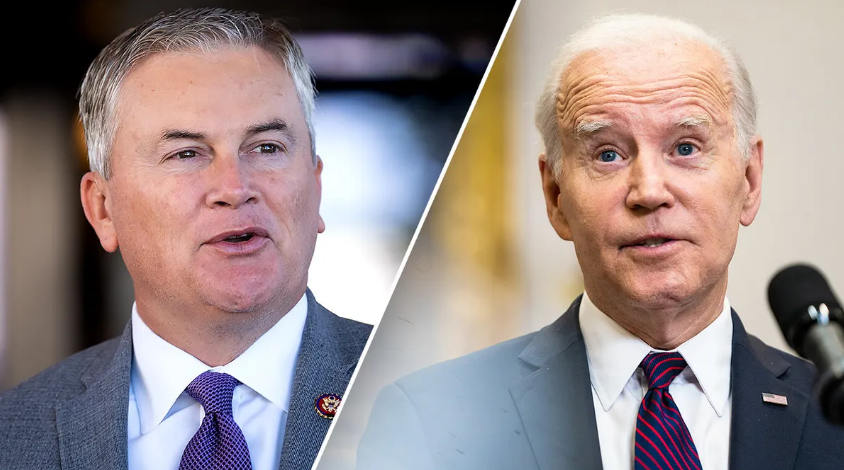In a surprising turn of events, Republican Representative James Comer announced on Wednesday his plan to invite President Joe Biden to testify as part of the ongoing impeachment inquiry on alleged corruption. This announcement came at the end of a public hearing that featured testimony from some former associates of the Biden family, including Hunter Biden who declined to attend after a closed-door interview last month. Comer cited a "material discrepancy" among witnesses regarding Joe Biden's involvement in his family's alleged "influence peddling schemes," and argued that the president himself is the only one who can address these discrepancies.
Speaking at the hearing, Comer stated, "In the coming days, I will invite President Biden to the Oversight Committee to provide his testimony and explain why his family received tens of millions of dollars from foreign companies with his assistance. We need to hear it from the president himself, and I assure the American people that they will be able to evaluate for themselves the president's honesty and fitness for the office he now holds." This move by Comer is a bold one, as it puts the current president directly in the crosshairs of the impeachment inquiry.
Democratic Representative Jamie Raskin, the ranking member of the Oversight Committee, responded to Comer's announcement by questioning whether he would also invite former President Donald Trump to testify about his own alleged emoluments violations. However, Comer dismissed this comparison, stating that Trump has been investigated for years while no one has investigated Joe Biden. When pressed by Raskin on what specific charges may be brought against Biden, Comer declined to give an answer and thanked the witnesses for their testimony, effectively bringing the hearing to an end.
The White House was quick to respond to Comer's invitation, with spokesman Ian Sams issuing a dismissive statement on social media. The post read, "LOL 🤦♂️ Comer knows 20+ witnesses have testified that POTUS did nothing wrong. He knows that the hundreds of thousands of pages of records he's received have refuted his false allegations. This is a sad stunt at the end of a dead impeachment. Call it a day, pal." This response highlights the tense and divisive nature of the ongoing impeachment inquiry, with both sides fiercely defending their positions.
🚨 Chairman Comer closes today’s impeachment inquiry hearing by saying he will invite President Biden to the Oversight Committee to provide his testimony. pic.twitter.com/DkA2C4zvfm
— Oversight Committee (@GOPoversight) March 20, 2024
The call for Joe Biden to testify comes after several weeks of public hearings in the impeachment inquiry, which have featured testimony from current and former Trump administration officials, as well as other witnesses. These hearings have largely focused on whether Trump withheld military aid from Ukraine in exchange for a politically motivated investigation into Joe Biden and his son. Democrats argue that this behavior constitutes an abuse of power and warrants impeachment, while Republicans have denounced the inquiry as a partisan witch hunt.
The timing of Comer's invitation also raises questions, as it comes just days after the House Judiciary Committee unveiled articles of impeachment against Trump, including abuse of power and obstruction of Congress. Some may view this as an attempt to deflect attention from the allegations against the president and redirect the focus onto Joe Biden. Others may see it as a strategic move to put pressure on Biden to clear his name and potentially damage his standing as a front-runner in the Democratic presidential primary. Regardless, it is clear that this invitation adds another layer of complexity to an already volatile political climate.
Whether Joe Biden will accept this invitation or not remains to be seen. So far, the president has not responded publicly to Comer's announcement. However, if he does agree to testify, it could add significant weight to the impeachment inquiry and potentially change the course of the proceedings. On the other hand, if he declines, it could be viewed as a sign of his confidence in his innocence and a blow to Republican efforts to paint him as corrupt.
This latest development in the ongoing impeachment inquiry serves as a reminder of the deep political divide in the United States. As the 2020 election draws closer, tensions are likely to only escalate further, with both sides digging in their heels and fiercely defending their positions. Whatever the outcome may be, it is clear that history is being made and the implications of this impeachment inquiry will be felt for years to come.


